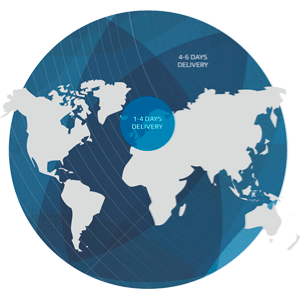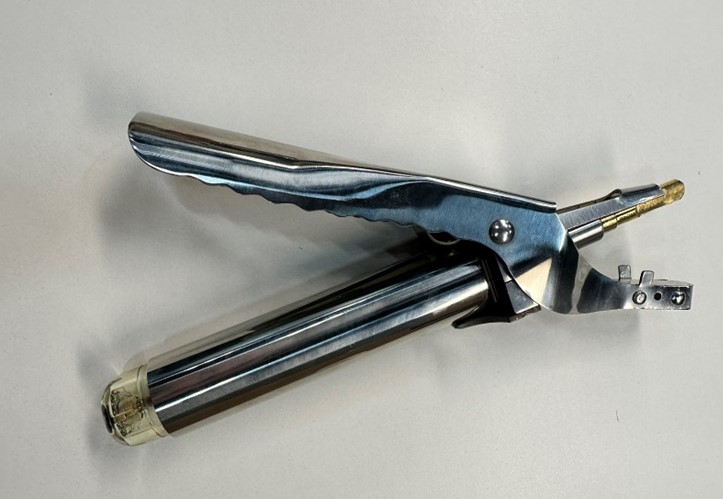FT learned about EU requests to Turkey to explain trade with Russia

Some EU countries have begun to turn to Ankara with inquiries regarding the growing trade turnover between Russia and Turkey, writes The Financial Times. European officials are irritated by the fact that Turkey does not support the restrictions imposed on Russia.
EU member states are increasingly worried about Turkey's booming trade with Russia and how it could help Moscow replace European imports and exports, two officials told the publication. “We are following this. This is not good and is not well received in the EU. This is an irritant, ”said one of the FT interlocutors.
From May to July, Turkish exports to Russia amounted to $2.04 billion, up $642 million from the same period in 2021, according to data from the Turkish Ministry of Commerce cited by the FT. Over the past month, Turkey’s exports to Russia increased by 75% year-on-year in value terms, from $417 million in July 2021 to $730 million in July this year. Turkey has not had such a surge in trade with any other country.
Since April, the Federal Customs Service (FCS) and the Bank of Russia have not published data on foreign trade. According to the Federal Customs Service, as of January 2022, Russian exports to Turkey amounted to $4.261 billion, imports - $618 million. Compared to January 2021, the trade turnover between the two countries as a whole increased by 235% in value terms, imports from Turkey - by 164%.
According to the Turkish Foreign Trade Assembly, cited by the FT, in terms of value in the list of goods that Turkey supplies to Russia, chemical industry products ($166.5 million) are in first place, followed by fruits and vegetables ($90 million), products textile industry ($78.5 million).
In general, Turkish exports in July increased by 13% compared to last year. According to the FT, Turkish exports have recently been on the rise due to rising inflation in the country and the fact that the Central Bank of Turkey adheres, despite this, to a loose monetary policy. The lira has lost a quarter of its value against the DOLLAR this year.
European officials also see it as a threat that Turkish businesses see the withdrawal of Western companies from Russia as an opportunity to enter the Russian market. Criticism of the expansion of business ties with Russia was also heard at the official level. “At a time when the EU is curtailing its ties with Russia in response to its aggression against Ukraine, it is not entirely appropriate to expand ties or engagement with Moscow,” Peter Stano, EU spokesman for foreign and security policy, was quoted by the FT.
Read on RBC Pro Pro You have 8 seconds.How to Present and Sell an Idea Summary Pro What Not to Tell About Your Children at an Interview InstructionsPro "This is a stab in the back for the industry":what IT companies suffered the mostHow Russians can now take TOEFL and IELTS and how to prepare for it Instructions Pro Brain drain in the IT sector can turn into a serious problem for Russia ForecastsPro x The Economist Bezos and Dorsey invest in African startups.What they hope for Articles Pro Q-commerce: what awaits fast delivery services Articleswhat awaits fast delivery services Articleswhat awaits fast delivery services Articleswhat awaits fast delivery services Articleswhat awaits fast delivery services ArticlesHowever, the EU's ability to put pressure on Turkey is limited due to the country's role in NATO, in containing the migration crisis and in negotiations with Moscow. It was through the mediation of Turkey that the “grain deal” was concluded, which made it possible to unblock the supply of Ukrainian grain to the world market.
“This is Turkey, everyone [in the EU] needs them for one reason or another. And the EU needs to be aware of its capabilities... we can't just tell [Erdogan] that he has to follow our rules,” says one of the FT's interlocutors.
FT reported EU concern over Russia-Turkey rapprochement Politics
In early August, the FT already reported that the EU countries were concerned about the rapprochement between Russia and Turkey against the backdrop of sanctions. Then one of the interlocutors of the publication said that Western countries could encourage businesses to leave the Turkish market or reduce their presence on it if official Ankara adheres to agreements with Moscow on transferring oil and gas payments into rubles and cooperation in the political sphere. According to the publication, if Western companies and banks comply, this could cause economic damage to Turkey in the amount of $ 800 billion. According to the FT source, such a measure can be approved "in light of the risk that will be created due to Turkey's expansion of its relations with Russia" .
Read together with it:
- The IEA sees a risk of a decline in oil production in Russia due to sanctions.The IEA sees a risk of reduced oil production in RUSSIA due to US sanctions , but maintains its production forecast. According to the IEA, Russian oil exports will remain unchanged.There is a "significant downside risk" to Russia's oil production forecast due to US sanctions, the International Energy Agency (IEA) said in a report.BLOOMBERG . The agency's experts believe that the latest US sanction...
- UniCredit заявил о галактических усилиях из-за санкций против РоссииUniCredit старается не нарушить «более 15 тыс. санкций», а также не «совершать ошибки», которые позволят изъять его активы в России, заявил гендиректор. После начала военной операции банк начал рассматривать возможность ухода Итальянский банк UniCredit прилагает «галактические усилия», пытаясь соблюсти международные санкции в отношении своего российского подразделения. Об этом заявил генеральный д...
- "Коллективы АПК способны решать любые задачи даже в непростых условиях". Назаров о заслугах сельхозпроизводителейЮрий Назаров 13 ноября, Минск. Обеспечение продовольственной безопасности страны - большое достижение трудовых коллективов аграриев, отметил управляющий делами Президента Республики Беларусь Юрий Назаров на торжественной церемонии награждения государственными и иными наградами работников АПК Управления делами Президента Республики Беларусь, передает корреспондент БЕЛТА. Торжественная церемония наг...
- Russian agriculture: self-sufficiency continues to growThe industry has a track record of implementing new technologies and increasing productivity. RUSSIA is already confidently self-sufficient in grain, MEAT, fish, vegetable oil, and SUGAR. Grain and vegetable production is also forecast to be higher this year, despite unfavorable weather conditions in some regions. The Ministry expects historic highs for some crops and continues to support agricult...
- Sustainable growth of the food and processing industries in BashkortostanIlshat Fazrakhmanov, Deputy Prime Minister andThe regional Minister of Agriculture noted that the development of these industries provides the population with essential food products and contributes to increased exports. Since 2020, agricultural exports from the region have doubled. Since the beginning of 2......
- Низкое предложение и устойчивый спрос: в Аргентине растут цены на мясоЦены на говядину снова выросли, что отразилось на полках супермаркетов и в мясных магазинах. За последние две недели розничные цены выросли на 8–12%, а на некоторые популярные отрубы рост превысил 15% по сравнению с октябрем. Тем не менее, продажи остаются высокими: потребители продолжают покупать, принимая новые цены и закрепляя тенденцию, которая повторяется каждый год в конце года, когда спрос ...
- В Тульской области уничтожили 24 кг санкционных сыров и мясных продуктов из ЕвропыВо время совместной проверки с транспортной прокуратурой из оборота было изъято 24,45 кг сыров и мясных изделий, произведенных в таких странах, как Дания, Испания, Норвегия, Италия, Ирландия и Франция. Ввоз данной продукции на территорию России запрещен в соответствии с указом Президента, касающимся специальных экономических мер. Изъятая продукция была ликвидирована путем измельчения и денатурации...



























































